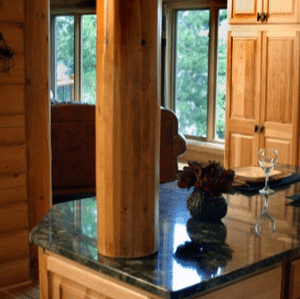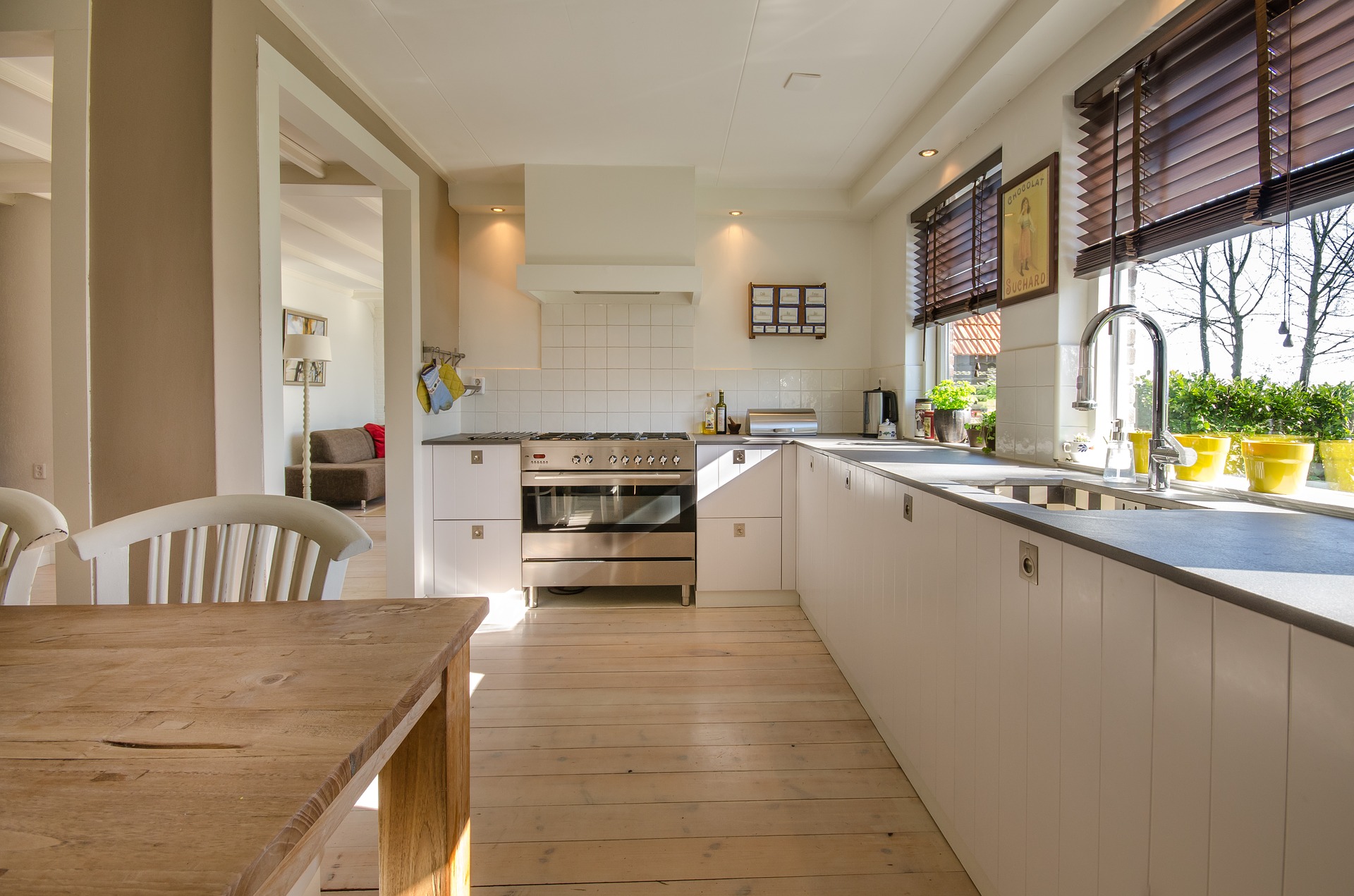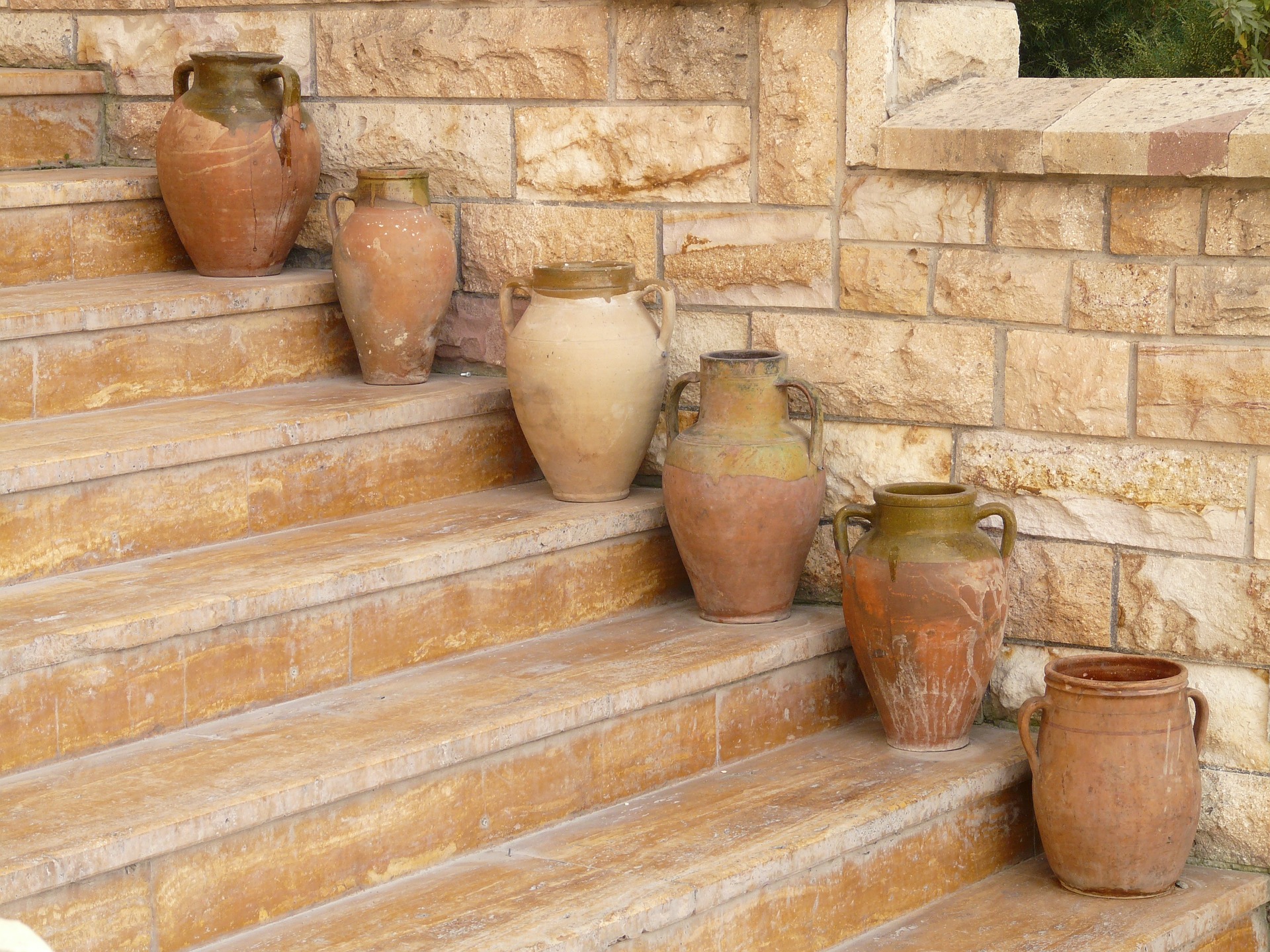Honed vs. Polished Marble: What’s the Difference?

Q: What’s the difference between honed vs. polished marble?
A: Shine.
Honed marble has no shine and should not reflect light. Its finish is matte and looks like a natural stone weathered by the elements. It is lighter in color than polished marble of the same type.
Polished marble shines due to polishing with very fine abrasives that remove all flaws that slow the return of light bouncing off the surface. It is darker in color than honed marble of the same type.
Think of the difference between a garden-variety rock and a cut gemstone. A gemstone is polished and cut to facilitate light bouncing around inside its many facets and creates sparkles in the stone. Polished marble’s extremely smooth surface allows light to reflect. Honed marble has a dull finish and does not reflect light; it absorbs it.

A kitchen sink with honed-marble countertops
The process to create both honed and polished marble is similar. The honed marble is achieved by polishing with gritty abrasives until the surface is smooth to the eye, but still has many small flaws that prevent a shiny appearance. All polished marble is honed first. After being honed, polished marble is sanded with smaller and smaller abrasives until surface flaws are removed and the marble is a smooth as possible.
Does honed marble and polished marble need to be sealed?
Yes, honed marble and polished marble need sealing. However, because honed marble is more porous, it needs sealing more frequently to prevent damage. Polished marble is slightly more resistant to staining as its porosity has been reduced by many additional rounds of polishing.
What are the practical benefits of a honed marble surface?
Honed surfaces have a rougher texture. They do not show minor surface damage like etches and scratches as prominently as polished stone. Honed marble is ideal for high-traffic areas and areas that may get wet and become slippery.

Weathered natural-stone steps
What are the practical benefits of a polished marble surface?
As previously mentioned, polished surfaces repel stains better as their surfaces are less porous. It also depends on the aesthetic you want for your natural stone kitchen countertops. Do you prefer high-shine or more of a matte look?
What about design? What finish is best for my décor?
Honed marble is ideal for certain design aesthetics. Because it has a matte finish it’s not showy and doesn’t draw attention to itself. It’s perfect for organic, natural looks and creates a warm, neutral background for other decorative touches. It’s often seen in homes influenced by classic Mediterranean designs and looks at home with Western and beachy styles. It’s less at home with design styles with many fussy elements (think Victorian, French provincial, etc.)
Polished marble is ideal for lavish looks and always looks high-end. It shines and is a beautiful compliment to luxe fixtures and ornate lighting. A fabulous crystal chandelier will revel in design fellowship reflected off a gleaming marble floor, table top, or counter. Polished marble also stands alone as a decorative element. Some of the great halls in grand homes and royal castles are simply an expanse of polished marble. Polished marble with clean lines and edges is also an ideal choice with a modern design. Its smooth shiny texture looks right a home next to chrome and leather.
Can I mix honed and polished marble?
Yes, you can. Mixing polished and honed surfaces is an “of-the-moment” idea that feels fresh. Consider a kitchen island in a showy polished marble like Calcutta with countertops in a honed marble of the same or contrasting stone. The polished area will draw the eye giving your kitchen a bold focal point.
How do I care for my honed or polished marble?
All marble should be treated with the same basic care:
- Use cutting boards at all times to protect surfaces from staining, and your knives from damage
- Wipe up all spills and food debris as soon as possible
- Clean with gentle cleaners designed for marble or simply with warm water and soft cloths
- Avoid some natural cleaners containing lemon juice or vinegar, these are both too acidic to be used on natural stone surfaces
- Seal your marble regularly as recommended by your installer
At Academy Marble & Granite we suggest you come in and take a look at the marble in our showroom before deciding on your finish choices. You may be overcome by the beauty of a showy slab and not be able to imagine it getting anything less than a full polish. On the other hand, that same piece may be just what someone is dreaming of for their matte-finish, 70s-Revival organic-look kitchen. They may decide a honed finish is just perfect for their vision. We’re confident you’ll find the slab you’ve been looking for. Click below to schedule a consultation today.


